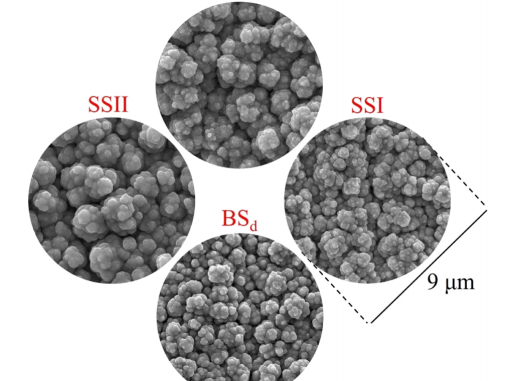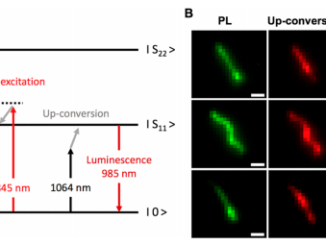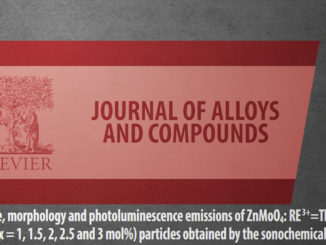
Tuning Electrochemical Bistability by Surface Area Blocking in the Cathodic Deposition of Copper
Abstract: We report herein a precise control of the electrochemical bistability induced by surface area changes during the cathodic deposition of copper. Small additions of 1,10-phenanthroline (Phen) in the reaction media present an inhibiting effect on the global rate mainly due to the adsorption of protonated Phen. The increase of its concentration favors a shrinkage of the bifurcation (saddle-node) diagram and shifts it to less negative potentials. The dynamic instability is verified by impedance measurements, and a negative impedance is clearly found. We calculated the apparent molar mass of the adsorbents using in situ gravimetric monitoring in the electrochemical experiments, and the results indicate that mass changes occur mainly due to the reduction of copper from bivalent ions dissolved in the reaction media. Importantly, the adsorption of protonated Phen molecules does not show a considerable contribution in mass variations but prevents the formation of a copper course grained morphology over the surface. Imaging analysis indicates finer nodulations at the lower branch compared to the upper branch in the bistability domain. On the basis of these observations, a kinetic mechanism is proposed and a good agreement is obtained between the apparent molar mass extracted from experiments and the theoretical values. Altogether, our results contribute to a detailed physical chemical description of the nonlinear behavior, bringing new insights about this reaction and pointing out the possibility to design switchable surface electrodes by taking advantage of the bistable behavior.
Author (s): Rospendowiski, J; Pinto, MR; Hessel, C; Sitta, E; Nagao, R
ACS OMEGA
Volume: 3 Pages: 13636-13646 Published: OCT 2018
PDF: Tuning Electrochemical Bistability by Surface Area Blocking in the Cathodic Deposition of Copper
DOI: 10.1021/acsomega.8b02353




